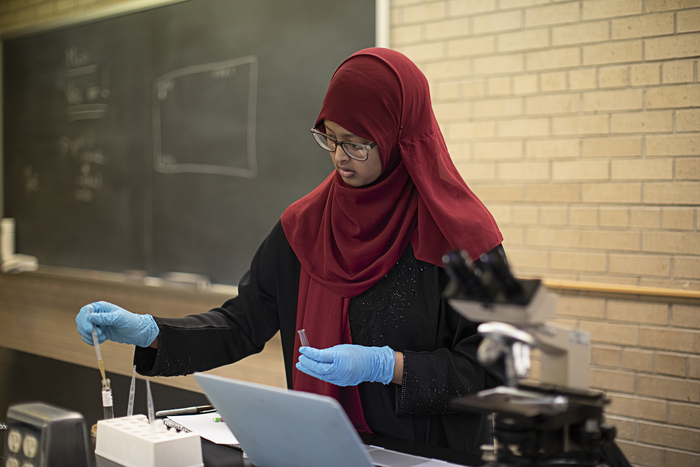
Where to Go for Help Getting into Med School and Other Professional Healthcare Programs
Even if you already have a bachelor’s degree, you may not be ready for the advanced education required for medical school, dental school, physician assistant school, or other professional healthcare programs. So what can you do?
You may want to consider a post-baccalaureate premedical/prehealth program. In the following, I’ll explain how you can benefit from such a program.
I’m an associate professor and Chair of Natural Sciences in the Post-Baccalaureate Premedical Program at Northwestern Health Sciences University. Over nearly 20 years, I’ve seen firsthand how a post-baccalaureate program can help prepare students for the next stage of their education path — and their life.
Could you benefit from this type of program? Let’s take a look.
1. Prove you’ve mastered certain subjects
When you apply to a professional healthcare program like med school, the admissions committee will invariably be looking closely at your undergraduate academic performance.
But if your grades aren’t especially strong, a post-baccalaureate program could help. That’s because it enables you to retake courses — upper level science courses in particular — that you didn’t do so well in the first time around.
More specifically, a post-baccalaureate program gives you a chance to demonstrate an upward trend in your academic performance, which is what that admissions committee will be looking for if your undergraduate GPA is less than ideal.
(For more information, see 8 Things to Know About Improving Your GPA to Get Into Medical School and Other Professional Healthcare Programs.)
2. Fulfill prerequisites
Before you can pursue a professional healthcare degree, you will need to have successfully completed a number of prerequisite science courses.
But if your undergraduate degree is in a subject like, for example, history, English, or a foreign language, it’s likely that you didn’t take many science courses.
A post-baccalaureate program gives you the opportunity to take those prerequisite courses.
3. Prepare for the standardized entrance exam
If you want to be a medical doctor or doctor of osteopathic medicine, you’ll need to take the Medical College Admission Test. If you’re interested in becoming a dentist, then you’ll need to take the Dental Admission Test. Other healthcare programs have their own entrance exam equivalents.
Obviously, you’ll want to be as ready as possible for your entrance exam.
The good news is that post-baccalaureate programs commonly offer preparatory classes and other resources specifically intended to help students prepare for entrance exams.
4. Benefit from advising that caters to your specific needs
To be thoroughly prepared for the next phase of your education, you’ll likely need to do more than just retake a few upper level science courses at a local university. In fact, if you do that, you’ll largely be on your own.
On the other hand, the best post-baccalaureate programs can help you at every stage of your journey thanks to personalized support from an individual advisor — as well as from experienced professors familiar with the unique needs of post-baccalaureate students.
Your advisor and course professors can also support your efforts by providing letters of recommendation, offering insights for your personal statement, and helping you prepare for entrance exams, to name just a few examples.
(Important note: Post-baccalaureate programs will vary. As you consider potential programs, be sure to ask about the advising component. Also, check out Choosing the Right Post-Baccalaureate/Pre-Med Program: 10 Key Questions to Ask.)
5. Gain other advantages from an organized program designed for people like you
In addition to the above, you can gain a number of other advantages from being in a post-baccalaureate program. Here are some of the most important:
- Enjoy a support network of fellow students with similar goals
- Have access to opportunities like volunteering and job-shadowing, which can make you a more competitive applicant
- Participate in mock interviews to prepare for the real thing
- Practice taking admission tests
- Connect with current and retired healthcare professionals for advice and insights
Take the next step and start exploring post-baccalaureate programs
If your dream career in healthcare seems out of reach, you now can see how a post-baccalaureate premedical/prehealth program could help. Do any of the points above resonate with you?
If so, then I strongly recommend you take the next step and start exploring programs.
Jason Thoen, PhD, is an associate professor and Chair of Natural Sciences in the Post-Baccalaureate Premedical Program at Northwestern Health Sciences University.
